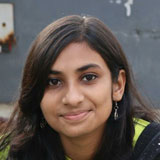150-year celebration of Presidency University’s Chemistry Department : GB Exclusive with Head of Chemistry Department
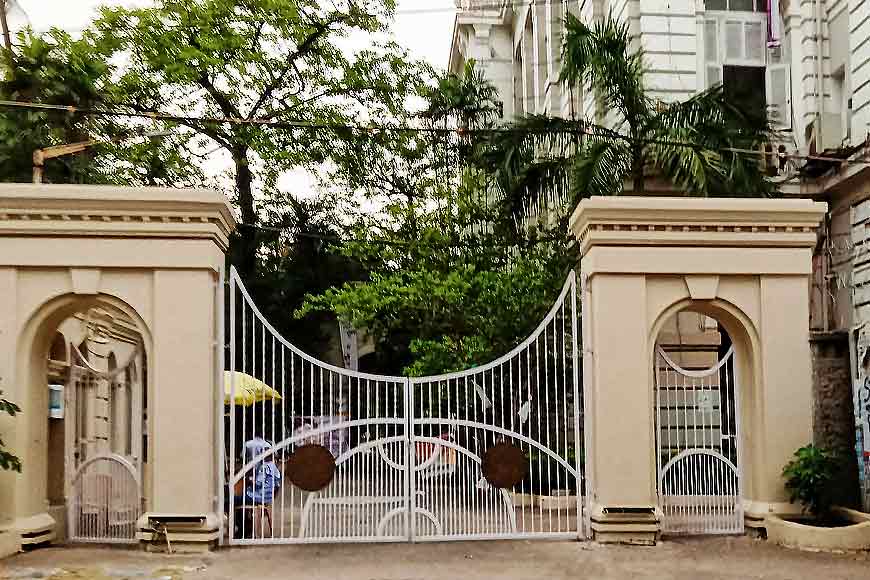
TDid you know that the Chemistry Department of Presidency University is the oldest in the country? Once upon a time, the University was known as Hindu College, then Presidency College, and now, Presidency University. And the department that made India proud over and over again was the Chemistry department through its chequered history and illustrious students who went on to rule the scientific world.
When GB spoke to the Head of the Chemistry Department, Professor Arnab Halder, he said, “In 1874, Alexander Pedlar joined the Chemistry Department as a Professor. Before that, there was no such department. From 1862 to 1873 Natural Sciences were taught here. A British professor used to teach physics, chemistry, geology, and natural geography. In 1862-63, while pursuing BA in any language course, one or two science subjects could be taken as courses. During 1872-73, an administrator, Sir George Campbell, who mostly looked after the academic section, wanted to spread science education. Accordingly, two foreign professors joined Presidency College and Hooghly Mohsin College. In Hooghly Mohsin College, the professor taught life science, and chemist Alexander Pedlar was posted in Presidency College. The main building of Presidency University was built in 1873-74 and on 31st March 1874, the new building was inaugurated. In the beginning, Pedlar used to teach at Albert Hall, which is now the Indian Coffee House. Then, in the main building, a room for the chemistry department was created along with a laboratory. Hence, it can be said that the Chemistry Department started in March 1874.”
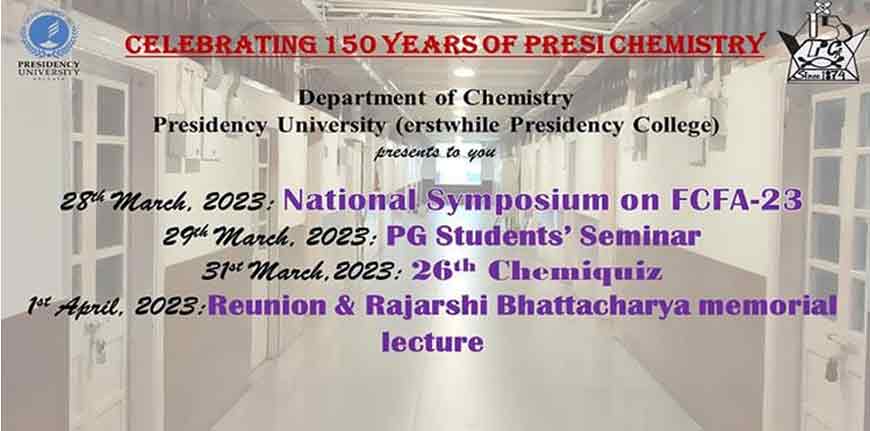
When asked how the laboratory started, he added: “Some foreign equipment was brought and the laboratory was started. Gradually, practical classes were made mandatory. Chemistry was more in focus as among the other science departments, practical classes in chemistry were the first to start. Then Pedlar had researched and published his works, he also became a fellow of the Royal Society. Acharya Prafulla Chandra Ray had joined as a teacher in provincial service, in the year Pedlar became a fellow of the Royal Society. There was a difference in remuneration between the Imperial and Provincial service, despite being the same designation, only to create a division between the British and the Indians, which is why scientists like Jagadish Chandra Bose did not take his remuneration for a long time.”
The faculty of the department teach the discipline as well as advise the youngsters on their future endeavours. They are available for consultation during office hours, they not only discuss the lessons taught in class and clear doubts but the discussions often include inquiries on philosophical and social issues. Today, the Department offers three-year undergraduate courses both in chemistry and biochemistry (42 seats in chemistry, 10 seats in biochemistry) and two-year post-graduate courses in only Chemistry (30 seats). The classes are interactive and have enough room for student-teacher discussions. Not only teaching but there is ample opportunity for research in the discipline. It was in 1889 that Acharya Prafulla Chandra Ray joined the then College and paved the way for new ways of teaching as well as made it possible for the students to do research in the field. He founded Bengal Chemical in 1892. He moved to Calcutta University as the first Palit Professor of Chemistry in 1916 after teaching at Presidency College for 27 years. The museum at Presidency University still preserves chemicals used by Ray. To commemorate his life and achievements, the Royal Society of Chemistry honoured Ray on 31st January 2012 by installing the National Chemistry landmark at Presidency.
The faculty members supervise the large number of devoted researchers, who are now working on their Ph.D. degrees at the university. The research programs currently pursued mainly belong to the following areas: photochemistry, electron transfer and energy transfer processes, synthetic organic chemistry, bio-organic chemistry, electronic structure theory, protein structure and folding, polymer chemistry, polyelectrolyte chemistry, surface chemistry, surface active ionic liquids, nanocomposites, synthetic inorganic chemistry, analytical and environmental chemistry.
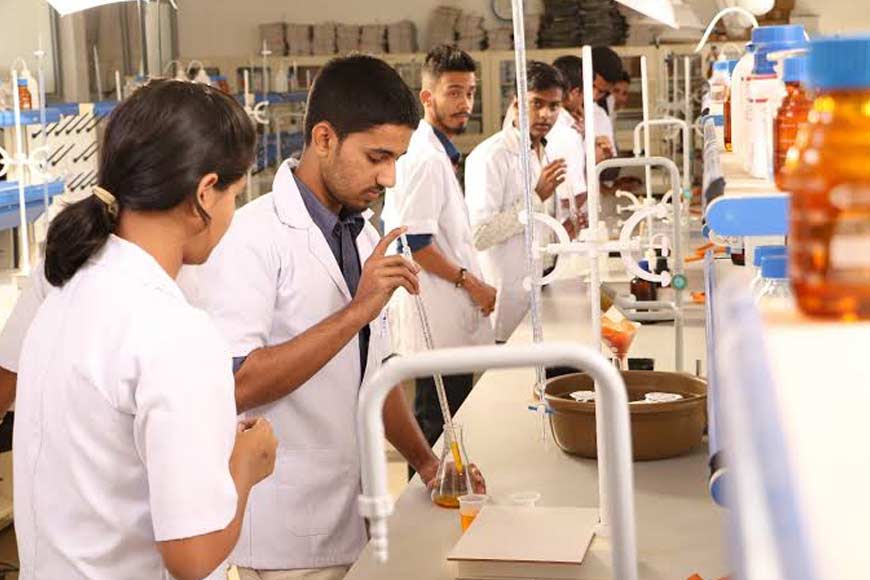
The continuous research and practice have led to the success of the department and helped it gain more and more recognition. Over the years, such success has attracted external research funding from various agencies, including the Department of Science & Technology, the Council of Scientific & Industrial Research, University Grants Commission, the department possesses a wide variety of modern instrumentation. It is currently a DST-FIST-sponsored department.
Halder said, “In 1886, the Chemistry Masters course started first in Presidency College. In 1986, the Chemistry department completed its hundred years of post-graduate teaching. In 1987, a hundred-year celebration committee was created and a lot of academic programmes were held. The committee then thought of involving students as well. A seminar competition was held among the postgraduate students of Calcutta University and Presidency University. Then Presidency University became autonomous. The committee’s last programme was held along with the 150-year programme as the secretary of that committee, who is now a professor at Calcutta University and the Vice Chancellor of Rani Rashmoni University, Ashutosh Ghosh, declared the end of that committee”.
On 28th March, three ex-professors of Presidency University were present at the inauguration. Pijush Ganguly, who was the DPI (Director of Instruction) for a long time, Monotosh Dasgupta, who is an alumnus and was a senior teacher in the presidency for a long time, taught me as well, Professor Sanjib Ghosh, who was my teacher as well, was also present. A poster competition was held in which almost 48 students participated. On 29th March, a seminar competition was held, where students of Presidency University participated along with Rajabazar Science College, Scottish Church College, Narendrapur College, Lady Brabourne College, and Behala College. The national seminar was supported by the American Chemical Society. On 31st March, the 26th Chemiquiz was held, which is a Chemistry-based quiz and is Presidency University's very own programme. Chemiquiz started in 1996 when I was a 1st-year student. The Chemiquiz, as a student outreach activity, was supported by the Royal Society of Chemistry.
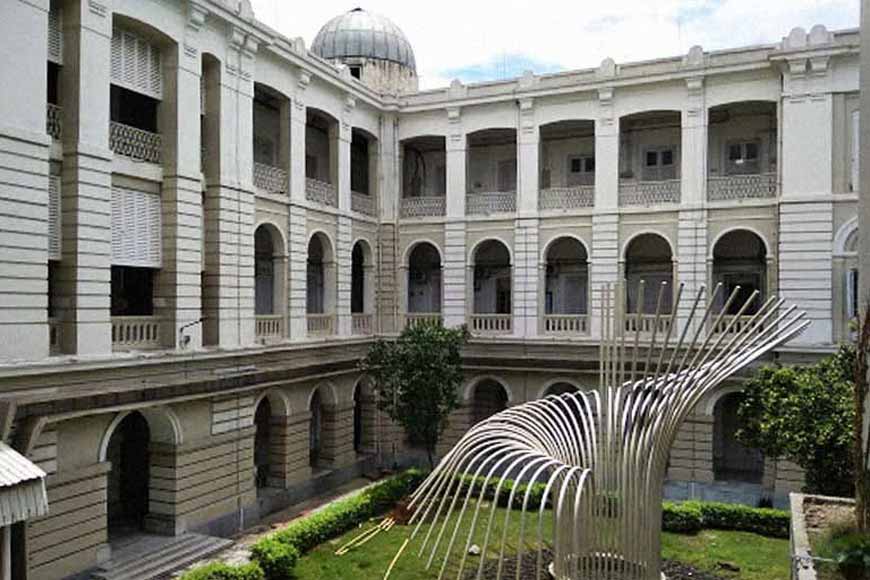
The 150-year celebration of Presidency University’s Chemistry Department ended with the inauguration of a much-needed UV spectrometer. The UV-spectrometer is a gift by the parents of a late alumnus, Rajarshi Bhattacharya, to their son’s alma mater. The prodigy of the Presidency’s chemistry department had died two years ago during his Ph.D. days at IISc Bangalore. Rajarshi’s parents came across a report by the Times of India, on the lack of funds to afford a new UV spectrometer after the old one broke. The bereaved parents came forward to help the institution get the new equipment by donating 7 lakh rupees to the department towards the purchase of the device. The device will help teachers and students with their lessons, practical, and research.
“We are thinking of organizing a series of programmes throughout the year, such as an academic programme that can be organized in August, on the birthday of Acharya Prafulla Chandra Ray. During the closing of the 150-year, around 24th January, an undergraduate and postgraduate workshop can be organized along with a reunion. We are also thinking of involving the school students to promote science education even more,” Arnab Halder concluded.






